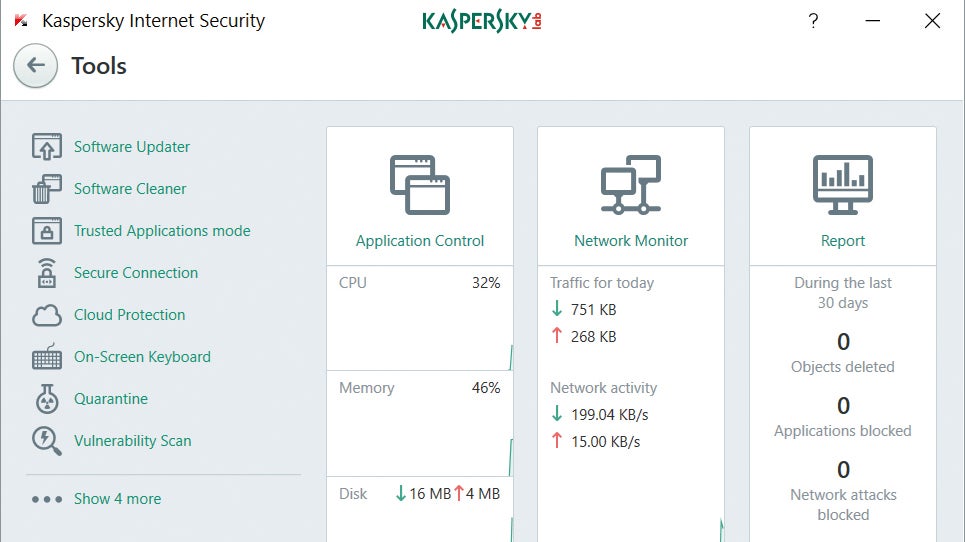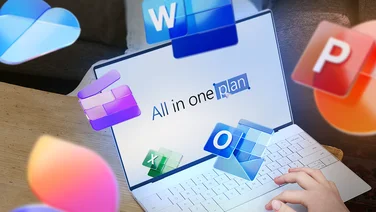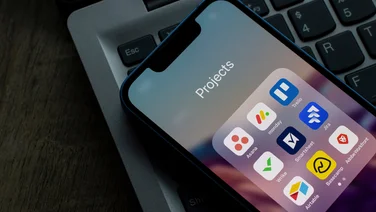To help us provide you with free impartial advice, we may earn a commission if you buy through links on our site. Learn more

- Huge feature set
- Flexible parental control
- Built-in VPN
- Incremental update
Some security suites pride themselves on elegant simplicity. Kaspersky goes the other way, packing in what’s probably the industry’s most extensive feature set. Last year’s release was so heavily laden with features that you might well wonder what could possibly be added to justify the new 2018 release.
READ NEXT: Best antivirus software
Surprisingly, the answer is more or less nothing. There are no new buttons to play with at all – just a few under-the-bonnet technical updates. For example, the ransomware module now does a better job of spotting when something’s tampering with your files, and there’s now extra protection to stop viruses from infecting your computer while it’s being restarted. Those are good things, but a major upgrade this ain’t. It’s telling that the software itself isn’t labelled with a year: the “2018” designation is about marketing rather than substance.
Still, even if it’s substantially the same as last year’s suite, Kaspersky remains a smart piece of software. Alongside the expected antivirus and web-protection modules, it boasts clever features such as Safe Money, which lets you automatically divert specific websites into Kaspersky’s own hardened browser – an intelligent approach that takes the friction out of web security. Webcam protection is sensibly implemented, too: if anything activates your camera, you’ll get a warning with an option to block it.
Some of Kaspersky’s features are even quite distinctive. Trusted Applications mode, for example, neutralises drive-by downloads and trojans by automatically blocking any application that isn’t expressly whitelisted. Power users might not find that very viable, but for certain scenarios, it’s perfect. There’s also a software cleaner, which aims to help you remove unwanted programs that might not be easy to uninstall through the regular channels.
Buy Internet Security 2018 now from Kaspersky
Even the more familiar modules are thoughtfully executed. The automatic software updater and vulnerability scanners are clear and simple to use, and Kaspersky’s parental-control module is very flexible, giving you highly granular control over what your child can do and when. You can blacklist or whitelist contacts on Facebook and Twitter, and block the transmission of certain key phrases – so your little one can’t be tricked into sharing your address or credit card details.

There’s even a built-in VPN, which can be used to cover your tracks online or access blocked content. But, unless you pay an extra £20 for an annual subscription, your usage is capped at just 200MB per day, and you don’t get to choose your exit mode.
Otherwise, the only part of Kaspersky Internet Security that undershoots expectations is the Rescue Disk link. While other packages seek to make it as painless as possible to get into their respective recovery environments, Kaspersky merely directs you to an ISO file and leaves you to it. Technical users will be fine, but this sort of casual treatment isn’t what you need in a crisis.
Still, if you can live with that, the rest of Kaspersky’s performance should make you very happy indeed. In AV-Comparatives’ tests, it achieved a very strong 99.7% score – within a whisker of perfection. And it wasn’t tripped up by a single false positive, so if Kaspersky tells you something’s dangerous, you can trust it.

The suite also has a modest impact on system responsiveness. Just like Bitdefender Internet Security, Kaspersky whooshed through AV-Comparatives’ application and web-browsing tests with “very fast” ratings in each. It fared slightly worse on the first run of the file-copy test – here it was only “fast” – but regained its speed on subsequent runs. In short, you don’t need to worry about Kaspersky bogging down your PC.
A final point in Kaspersky’s favour is the price. The latest edition of the suite is £27.50 on Kaspersky’s UK website, but you can buy a three-device licence on Amazon for just £20. Don’t be put off by the 2017 branding: the code will activate the 2018 suite.
Kaspersky Internet Security 2018 review: Verdict
In all, you might be tempted to go for Kaspersky as an alternative to Bitdefender Internet Security. Just be aware that the two suites are aimed at slightly different constituencies – as reflected, perhaps, in the fact that Kaspersky Internet Security doesn’t have an equivalent to Bitdefender’s Autopilot mode. This isn’t a suite for people who want set-and-forget security, but for power users and tinkerers. If that’s you then dive in: this year’s Kaspersky may be almost identical to last year’s, but it’s still an excellent, extensive and highly configurable security suite.








